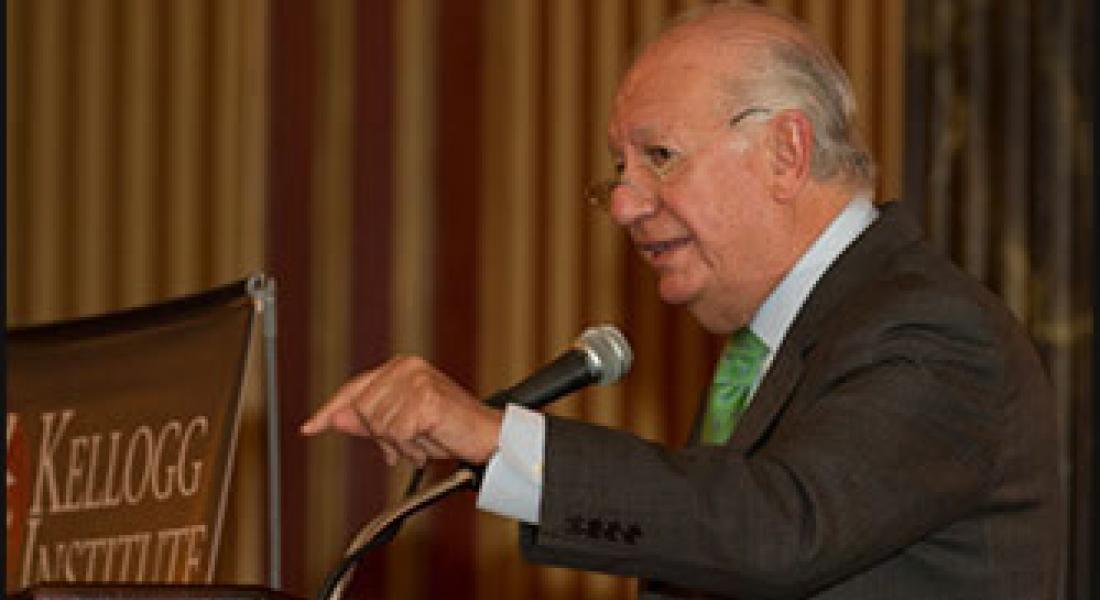
With a stirring speech on democracy and memory, former Chilean president Ricardo Lagos launched a lecture series established by the Kellogg Institute for International Studies in honor of internationally renowned University of Notre Dame professor of political science Guillermo O'Donnell, who served as the Institute's founding director.
Delivered in Chicago on May 21, the address to a standing-room only crowd opened the 32nd international congress of the Latin American Studies Association (LASA), which drew thousands of participants from around the world.
At the heart of O'Donnell's work, said Lagos, was one question: "How are we going to be able to put the dignity of the human being at the center of democracy?"
Today, the challenge for political scientists who build on O'Donnell's legacy is to construct a new socioeconomic-political paradigm for Latin America, he said, one that addresses the current context of economic inequity and looks carefully at the "degrees of freedom" citizens enjoy.
"Democracy is a process, a never-ending goal," said Lagos, likening it to a tree that needs water to grow. "The question of memory is essential to understanding what you can accomplish in a democratic society."
"Guillermo O'Donnell would agree with me—there is no tomorrow without yesterday."
New lecture focuses on democracy and human development
Speakers at the Kellogg Institute's annual Guillermo O'Donnell Lecture will be leading intellectuals and policymakers who have made major contributions to promoting democracy and human development, in Latin America and around the developing world.
A native of Argentina, O'Donnell was one of Latin America's most prominent political scientists. His thinking evolved as Latin America did itself, with the focus of his work changing from authoritarianism and transitions to democracy to the quality of new democracies to a larger understanding of the future of democratic systems.
"We want the lecture series to be forward looking," said Kellogg Institute Director Paolo Carozza, noting O'Donnell's commitment to principles of justice and human dignity throughout a lifetime of scholarship and service.
"Ricardo Lagos embodies the model that Guillermo's work represented, at the intersection of serious ideas and the practice of politics, of economics, of dedication to the service of the region," Carozza said.
A widely respected economist, Lagos established a lifelong friendship with O'Donnell while living in exile in Buenos Aires after Chile's military coup. The secretary general of the Latin American Faculty of Social Sciences (FLACSO) at the time, Lagos returned to Chile in 1978 to lead the Democratic Alliance of parties opposing General Pinochet and served as president of Chile from 2000–06.
Since stepping down as president, he has served as president of the Club of Madrid and UN special envoy on climate change and created the Foundation for Democracy and Development, which he currently leads.





